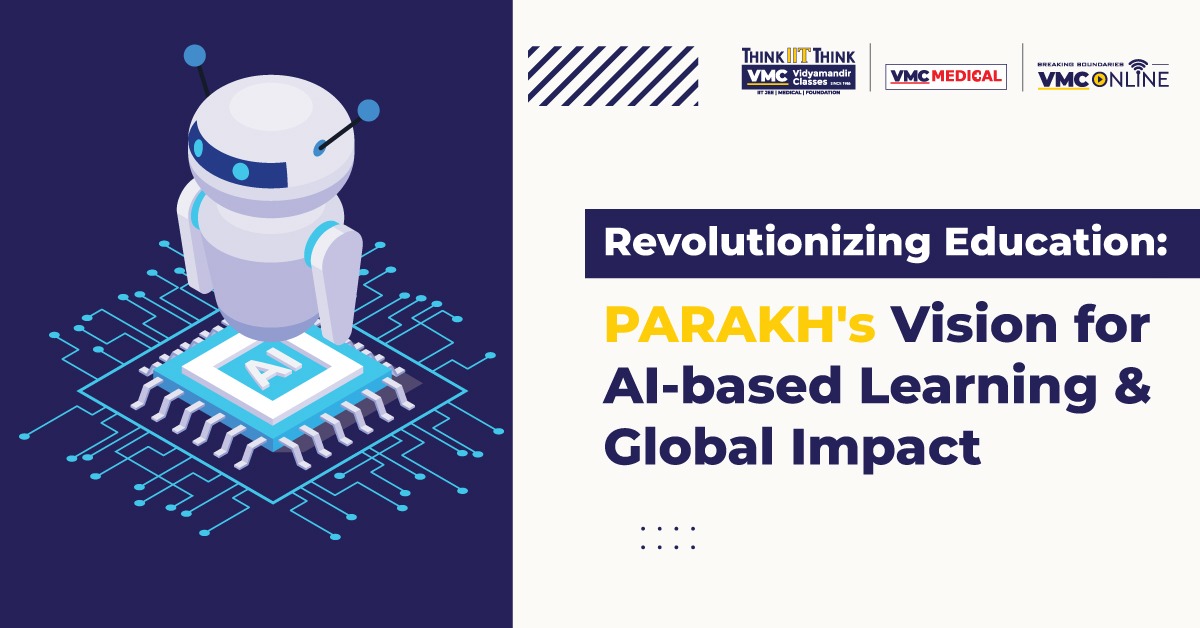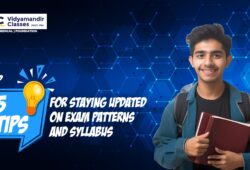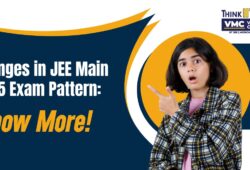Revolutionizing Education: PARAKH’s Vision for AI-based Learning & Global Impact
 Posted On
Posted On
365 total views, 1 views today
In the world of education, something big is happening in India! The National Council of Educational Research and Training (NCERT) has started a project called PARAKH. This stands for the Performance Assessment, Review, and Analysis of Knowledge for Holistic Development. It began in February 2023, and it’s set to change how education works in India. Let’s explore what PARAKH is up to, like using smart technology for learning, online tests, and getting advice from experts around the world. Get ready for some exciting changes in the education landscape!
Setting the Stage:
At the core of PARAKH’s mission is the pursuit of parity among India’s diverse school examination boards, addressing a key recommendation of the National Education Policy (NEP) 2020. By 2026, PARAKH aims to streamline assessment and evaluation standards, bringing about a sense of equivalence across educational boards, including the prominent Central Board of Secondary Education (CBSE).
Lofty Goals and Roadmaps:
PARAKH-NCERT envisions more than just standardization; it aspires to become a full-fledged center providing consultancy and technical expertise to neighboring countries in the region by 2028. The roadmap, accessible through a Right to Information (RTI) application, outlines specific milestones for the first year, the three-year mark (2026), and the ultimate goal in five years (2028).
AI-Based Personalized Adaptive Learning:
A highlight of PARAKH’s roadmap is the development of AI-based Personalized Adaptive Learning programs (PALs) by 2028. These programs aim to enhance the attainment of learning standards by tailoring educational experiences to individual students. The integration of AI in education represents a forward-looking approach, acknowledging the transformative potential of technology in shaping the learning landscape.
Global Collaboration with ETS:
In a strategic move, NCERT has enlisted the expertise of Educational Testing Service (ETS), a global leader in private testing, as a technical partner for PARAKH. Known for conducting exams like TOEFL and GRE, ETS’s collaboration signifies a commitment to leveraging global best practices in testing and assessment methodologies.
Digital Transformation of Assessments:
PARAKH’s roadmap includes the digitization of assessments, enabling the tracking of achievements at both the school and student levels by 2026. This move towards digital assessments reflects a progressive stance, aligning with the contemporary shift towards technology-enhanced learning and evaluation methods.
International Consultancy and Technical Expertise:
By 2028, PARAKH aspires to establish itself as an independent center, providing consultancy and technical expertise on assessments to countries in the region. This global outreach underscores India’s commitment to sharing knowledge and best practices, fostering collaborative efforts to enhance education systems beyond national borders.
First-Year Priorities:
In its inaugural year, PARAKH has outlined three key priorities:
- Supporting NCERT in establishing equivalence across educational boards and board exams.
- Enhancing the technical quality of the National Achievement Survey (NAS) and other large-scale assessments.
- Advancing the use of effective and equitable school-based assessments.
Role in Setting Standards:
Beyond assessments, PARAKH-NCERT assumes a pivotal role in setting general standards for teaching and education systems. It will support and supervise the State School Standards Authority (SSSA) in assessing and accrediting teachers and education systems. The establishment of independent state bodies, SSSAs, aligns with the NEP 2020’s vision of creating standardized parameters in consultation with various stakeholders.
Preparation for NAS 2024:
PARAKH is actively involved in preparing for the National Achievement Survey (NAS) 2024 and Foundational Learning Study (FLS) 2024. The NAS, a country-wide survey assessing students’ learning competencies across school boards, is set to undergo a pilot test of questionnaires in February 2024. The focus is on maintaining consistency with NAS 2021 to facilitate meaningful score comparisons.
Holistic Progress Cards and Learning Standards:
In line with the NEP 2020, PARAKH is set to create templates for Holistic Progress Cards (HPCs) across educational levels. These multidimensional reports will offer a detailed reflection of each learner’s progress in cognitive, affective, and psychomotor domains. Additionally, PARAKH aims to develop learning standards at foundational, preparatory, middle, and secondary levels, fostering a comprehensive approach to education.
Funding and Global Support:
It’s noteworthy that PARAKH’s endeavors are supported by the World Bank under the Strengthening Teaching-Learning and Results for States (STARS) project. This external backing signifies the global recognition of India’s commitment to elevating education standards and outcomes.
Final Thoughts:
PARAKH’s vision for the future of education in India is both comprehensive and forward-thinking. The incorporation of AI, digitized assessments, and international collaborations positions India as a key player in the global education landscape. As PARAKH strives to bring about equivalence among educational boards and sets new standards, the impact on teaching, learning, and assessment methodologies is bound to be transformative. The journey towards 2028 holds the promise of not only reshaping education in India but also contributing valuable insights to the broader international education community.




